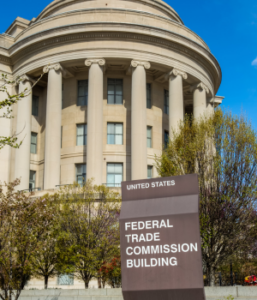By Addison Peterson, CAMEO Policy Specialist
Last week, Public Private Strategies Institute (co-sponsored by CAMEO and other small business partners) hosted Lina Kahn, chair of the Federal Trade Commission (FTC) to discuss how the agency is helping small businesses.
Since Chair Kahn’s appointment in 2021, the FTC has worked hard for small businesses by tackling the following:
- credit reporting issues,
- right-to-repair,
- the agency’s recently proposed rule to ban non-compete clauses,
- small business safety within the digital space, and
- useful tools and services for small businesses nationwide.
In April 2022, the FTC took action against Dun & Bradstreet, a provider of business credit reporting services, for inflating the value of their products and services and failing to create a process to remove inaccuracies from business credit reports. Inaccurate information on credit reports costs many small businesses capital access opportunities, a ruined reputation, and lost time and money spent fighting credit report inaccuracies. The FTC now requires Dun & Bradstreet to remove inaccuracies from a credit report promptly and transparently.
Small third-party repair stores are impacted by a lack of right-to-repair because companies often restrict individuals and small third-party repair stores from repairing devices by voiding the warranty. The FTC took action against Westinghouse and Harley Davidson in 2022 to crack down on companies voiding warranties if a consumer uses a third-party repair service or third-party parts. Chair Kahn believes allowing consumers the right-to-repair their devices will eventually allow small third-party repair firms to create more business.
Non-compete agreements harm small businesses because larger corporations force them onto employees. This leaves small businesses and start-ups unable to hire skilled talent. According to the FTC, there are approximately 30 million employees in the United States impacted by noncompete agreements, or about 1 in 5 workers. Earlier this year the FTC proposed a ban on non-compete agreements to free up the number of eligible employees able to apply to small businesses or start businesses of their own.
Lastly, Chair Khan discussed review fraud on apps and websites such as Yelp, Google, and Bing. She warned about businesses that post fake reviews, negative and positive. False reviews can lead to fraud, which harms small businesses because consumers do not receive fair or accurate reporting of their experience with the business. This has led to a loss of business because of false reviews. Quite often websites or apps that offer reviews do not have a system to remove false reviews. The FTC notified t 700 bad actors that they could face a fine of $43,792 per violation.
If any of your clients have issues, small businesses can reach out to the FTC through their complaint hotline to report fraud. If there are any open dockets that are receiving comments, the FTC would love to hear the small business perspective.

